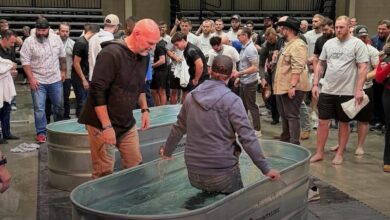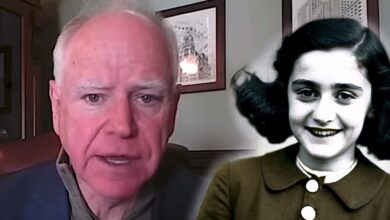Church food pantry threatened by city

An Arizona church is the latest to be threatened over its food pantry by the local government.
Gethsemani Baptist Church in San Luis, Arizona, has operated a food pantry since 1999 as part of its faith mission to serve the most vulnerable. For more than 25 years, it has distributed food, clothing, water, and household supplies. About 300 families regularly participated in the distribution each Saturday morning.

But now the City of San Luis has been citing the pastor and threatening an enforcement action against the church for alleged zoning code violations if it doesn’t cease operations, the church’s federal complaint states.
For years the City of San Luis partnered with the church, including providing a warehouse for the church to store most of the food and supplies, according to court filings. Food was transported from the warehouse to the church by semi-trucks, which parked in the church parking lot to unload the goods.
READ: Doing away with “sell by” date gets support
When the city passed a new zoning code in 2012, the food pantry at the church was allowed and treated as a “legal, non-conforming use.”
But when new mayor Nieves Riedel was elected in December 2022, the city’s support for the food pantry ceased. According to the complaint, the mayor told Gethsemani that it could no longer use the city warehouse and prohibited the church from using the city park across the street for food pantry activities.
The city then began threatening the church with zoning violations for the semi-truck deliveries, even though the semis didn’t park on the street and the church promised to keep the unloading to under two hours as allowed by city code, the court documents state.
Later, the city also sent a letter saying that food distribution itself violated the city code.
Gethsemani tried to work with the city to reach a resolution, said Ryan Gardner, an attorney with religious freedom public interest law firm First Liberty.
First Liberty filed a complaint in federal court on behalf of the church seeking a preliminary injunction to stop the City of San Luis from blocking the church from distributing food to the poor.
This is one of a group of cases about which MinistryWatch has reported where cities are using zoning or other codes to stop churches from engaging in compassion or benevolence ministries.
Chris Avell, the pastor of Dad’s Place in Bryan, Ohio, was criminally charged with 18 counts for zoning violations on New Year’s Eve because he opened the first floor of the church in a business district to homeless people. Those charges were later dropped as part of an agreement.
Mechanics of Faith was forced to move its operations due to zoning from New Life Baptist Church in Henrico County, Virginia, where it has been performing low cost car repairs since 2019.
First Liberty says that it has been involved in a dozen or more zoning-related cases with churches in the past year.
Gardner said the cases are sometimes based on ignorance of the federal protections to which churches are entitled, but at other times, such as in the Gethsemani Baptist Church case, he sees hostility.
“We are seeing an alarming trend of government authorities being hostile when they should be walking alongside and applauding these ministries,” Gardner said.
Attorney Dan Dalton said he’s not really seeing a trend upward in church compassion ministries being stifled by city zoning regulations—he says it has been a constant issue.
People like the idea of compassion ministries, Dalton said, but they adopt a NIMBY attitude—not in my backyard. He thinks many of the zoning code cases are based in hostility by those who don’t want to deal with the people who benefit from compassion ministries.
Dalton is author of “Litigating Religious Land Use Cases” and is a founder of the Detroit-based law firm Dalton & Tomich.
He explained that the Religious Land Use and Institutionalized Persons Act (RLUIPA) was passed unanimously in 2000. It provides that churches ought to be treated on a level playing field with other similarly-situated businesses or groups. Churches are not exempt from zoning, but have to be treated equally, he explained.
Additionally, RLUIPA prohibits a city from imposing a regulation that substantially burdens the religious mission of a church. If it does, the city must justify the regulation in furtherance of a compelling governmental interest and by the least restrictive means available.
If churches find themselves facing zoning regulation issues with a city, Dalton suggests they start by trying to find middle ground that can alleviate city concerns while still allowing the church to carry out its mission. This might involve agreeing to certain hours, noise levels, and traffic regulations.
After that, if no resolution is reached, the church could consider if it can use another space to carry out its ministry that doesn’t carry the same zoning concerns, Dalton offered.
Finally, if the church considers the ministry vital to its mission and is unable to reach an agreement with the city, a lawsuit may be the only option.
In the Gethsemani case, the church claims to have sought resolution with the city but was unsuccessful. It also can not afford to relocate the food distribution ministry.
“The church serves those in need no matter where they come from. The city’s actions are indefensible,” Gardner said of the case.
–Kim Roberts | Ministry Watch | Used with permission







